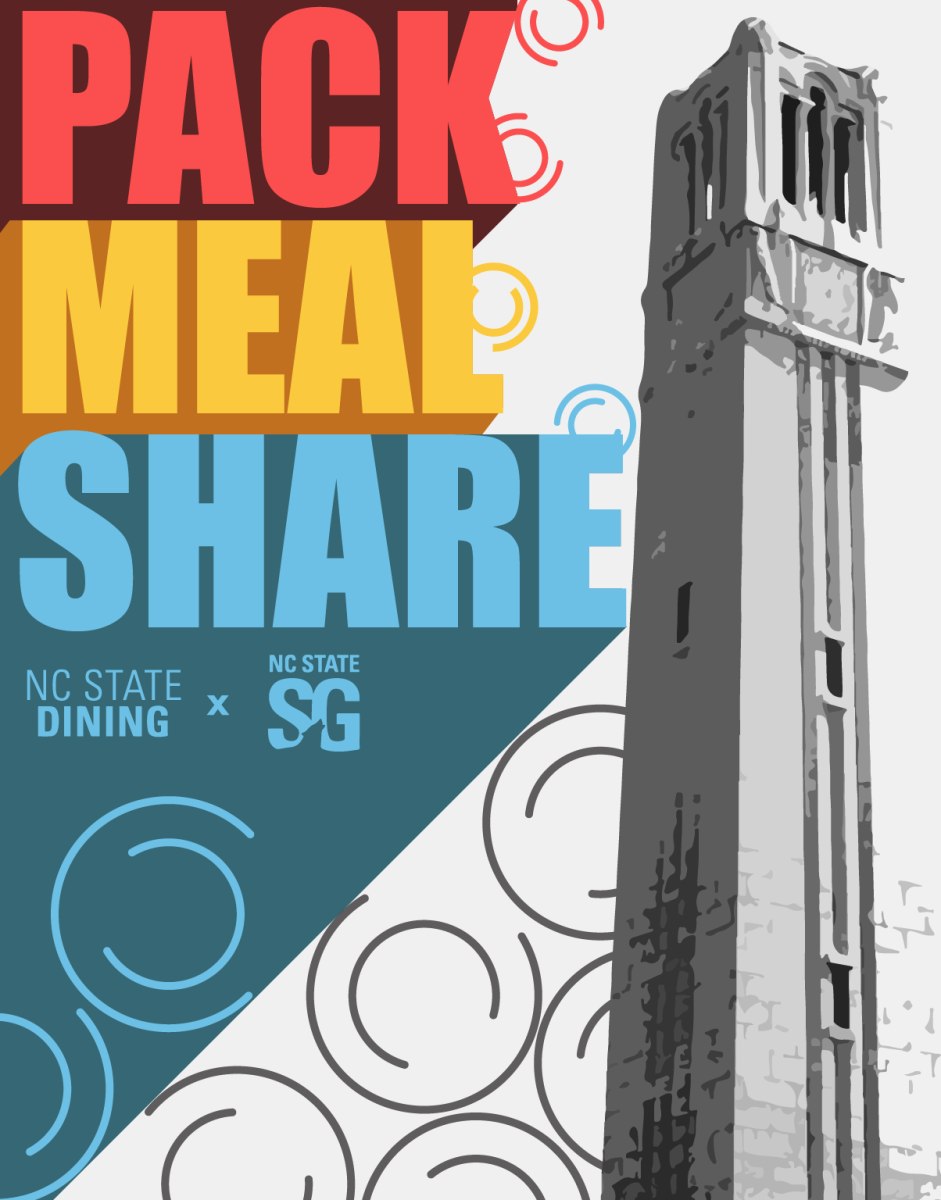Food insecurity, a state where individuals do not have reliable access to fulfilling food, is a reality that NC State has been working to combat with initiatives such as Feed the Pack and TRIO. However, after a recent study conducted by NC State showed that 14 percent of 7000 students surveyed had experienced food insecurity, campus partners have been working to make food more accessible and affordable for students.
Jess Errico, student body president and fifth-year studying mechanical and aerospace engineering talked about how the study started the quest for a solution.
“[The study] had some startling numbers,” Errico said. “In terms of how it’s affecting our student population, and we as student leaders began thinking about how we can contribute to addressing that need on campus.”
To combat the issue, the Division of Academic and Student Affairs and Student Government have taken the issue into their own hands by creating a two-part program in hopes of ending campus food insecurity and increasing the well-being of the student population.
The first part of the program is a need-based scholarship that allows students access to meal plans. This initiative uses private money from DASA to fund meal plans for those students in need.
This part of the program focuses on those students with long-term food security needs and works as any scholarship does. Students will have to apply through a form on the DASA website where they will be reviewed for approval. Once students are approved they will be enrolled in a meal plan and be able to use it the same as any other student with a meal plan.
While the need-based meal plan works for students who need consistent meals, Errico said that it still did not work for students who did not have access to food because of an emergency.
“But that didn’t address the emergency need,” Errico said, who was a key player in organizing the second part. “If my car breaks down and I can’t get to work to make money anymore. Do I eat or do I fix my car?”
The second part of the program is called ‘Pack Meal Share,’ and is a more drastic initiative that focuses on that emergency need by receiving the unused guest passes at the end of each semester to create a food bank of meal swipes.
“It’s something that has been a pipe dream for a lot of students,” Errico said. “The idea of ‘what do we do with our leftover meal swipes at the end of the semester?’ has always been a question that’s asked.”
With this in mind, Errico brought it to the executive council within Student Government and set out to find a solution.
“The specific idea of student to student sharing and donating came through brainstorming sessions internally in Student Government,” Errico said. “It was something we then presented to Randy Lait and Campus Enterprises to see what was feasible on their end.”
Randy Lait, director of Dining Services, said that he knew it was possible but wanted to find a way to do it that would be convenient to all parties.
“There are ways it could be done, but it had to be done correctly,” Lait said.
Because Lait did not want to raise the cost of students meal plans, his focus was looking for an alternative, but effective solution which were guest meal swipes.
“The guest meals were already part of the plan and a lot were going unused,” Lait said.
Every meal plan comes with either, 3, 5 or 8 guest swipes per semester. A lot of these swipes are leftover at the end of the semester and that is what led to the creation of this program.
“When we have leftover food we try to find a good home and purpose for it,” Lait said.
The guest passes are transferable between students meaning that a student can sign up to give their unused guest passes away and they can be transferred straight to another student’s ID. That way, both students can go about their regular routines after being signed up for the program.
“We appreciate that it’s student-to-student giving,” Errico said. “It alleviates some of the university barriers of the university simply donating things to students, it alleviates those barriers to creating the program.”
This program came about over the summer and was totally put into place before the school year started. An impressive feat given the many departments needed to make it happen.
“It was a lot of moving factors and a lot of campus partners who bought into the idea,” Errico said. “The need wasn’t going away and we wanted to roll it out as quickly as we could.”
To get the initiative started, Lait donated 1000 meal swipes, so that students will not have to wait until the end of the semester to begin receiving food when they may need a meal.
“I think the generosity of the NC State students will keep this program going for a long time to come.” said Lait.
To learn more about Pack Meal Share students can visit the DASA website.








